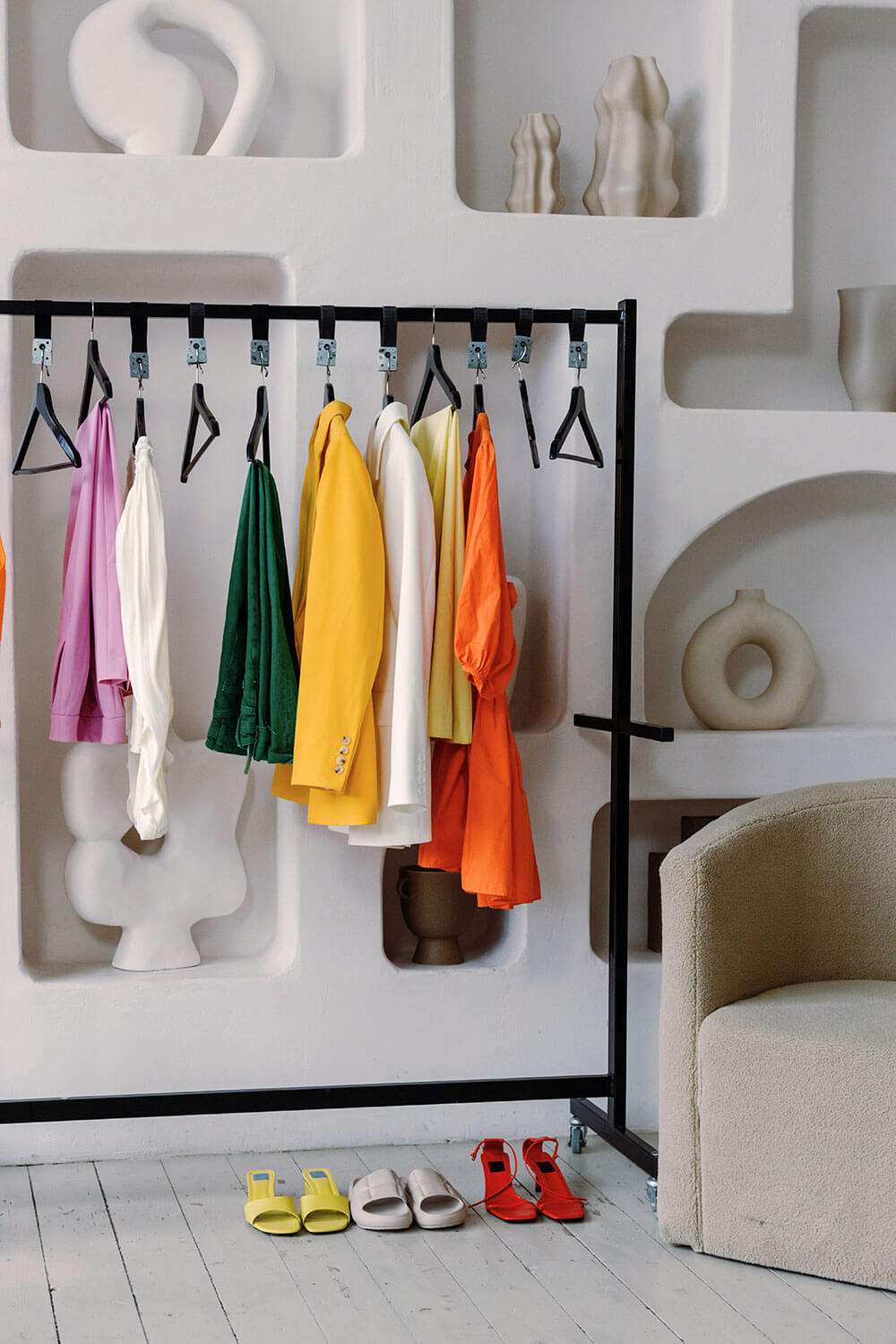I get the allure of fast fashion.
With rent, groceries, gas, and living getting more and more expensive, it’s a great dopamine hit to score a whole new wardrobe for under $100. (Look cute, feel cute, right?) But it demonstrates an incredible amount of privilege that we can enjoy these prices while ignoring the nasty (a.k.a. sweatshop) elephant in the room.
Most people don’t actively research why these brands are bad—what they’re doing and how that’s actually affecting consumers as a whole. And I feel you, it’s a lot to wade through. So I’ve made it easy-peasy for y’all by summarizing some of the more questionable practices of, and which top fast-fashion brands to avoid, along with a few resources on finding sustainable swaps.

The top fast fashion brands to avoid during your sustainability journey
Shein
I know people love this brand. But y’all… It’s. So. BAD. Shein is notorious for stealing the work of small creators, and is currently involved in a RICO investigation because of these infringements. They’ve also been accused of unethical labor practices which makes sense, as that’s often what allows fast fashion brands to offer consumers dirt-cheap prices.
For some, brands like Shein may seem like the only affordable way to get new clothes. But there are clothing-swap and free exchange FB groups full of other women who are in the same predicament that probably have the same style as you. And if that doesn’t pan out, thrifting is always an option for those with the patience.
Urban Outfitters
Besides having a string of ill-advised fashion choices (i.e. the infamous “Kent State” sweater), URBN (who owns Anthropologie and Free People) has had a long and reoccurring history of labor exploitation. They’ve been caught using subcontractors who employed children, sweatshops that severely underpaid workers in Bangladesh, and even been accused of violating labor laws in Pennsylvania. Plus, over the years, they have also come under fire for stealing indie designers’ work. But if you love the UO vibe, and Anthro to,fear not—we have guides to ethical alternatives for them both here and here.
Boohoo
This is for my Gen Z girlies. I know that Boohoo has all the cute, trendy, and affordable pieces for a hot girl closet, but their sustainability pledge (if you can call it that) is basically nonexistent. While they do have a tab on their website addressing sustainability, it has very vague promises, no solid numbers or statistics, and honestly kind of feels like it was written by a high schooler.
It also feels a little gas-lighty that they talk more about how you, the consumer, can be more sustainable, while barely addressing how they themselves are working towards the same goal. Lastly, like everyone else mentioned here, they’ve come under fire for unfair labor practices.
Zara
Out of all these brands, Zara is arguably one of the more sustainable companies. They use recycled packaging and have made lofty goals like phasing out single use plastics in 2023, but there’s still a lack of transparency when it comes to their supply chain and working conditions for their manufacturers. Any and all documentation their parent company, Inditex, has on sustainability focuses more or their projected goals without offering any real numbers to show they’re actually reaching them. Can you say greenwashing?
I’d say anyone who enjoys Zara would also love Wolf & Badger. This global community of independent brands is B-Corp certified, and offers sustainably and ethically sourced clothing that leans more towards a refined, luxurious palate. While each brand has its own values when it comes to sustainability—see what we mean here—you won’t find any major fast fashion brands to avoid on their vendor list.
H&M
I feel like we’ve all been led to believe H&M is an okay-ish company because they have a clothing recycling program and talk about sustainability. But it’s giving major green-washing energy; they came under fire in 2018 for allegedly burning unsold clothing instead of recycling them.
All in all, at the end of the day, it may feel inconsequential for one person choose a few fast fashion brands to avoid. But in reality, it’s the collective efforts of each individual that’s slowly shifting the market away from textile waste. We are the ones that have the influence to force companies to become more sustainable. And it’s through small changes like shopping local or recycling our wardrobes that we really start to make a difference in what’s “desirable” tomorrow.
Looking for ethical alternatives to the brands featured above? Comb through a few of these sustainable fashion guides for ideas:
your two cents